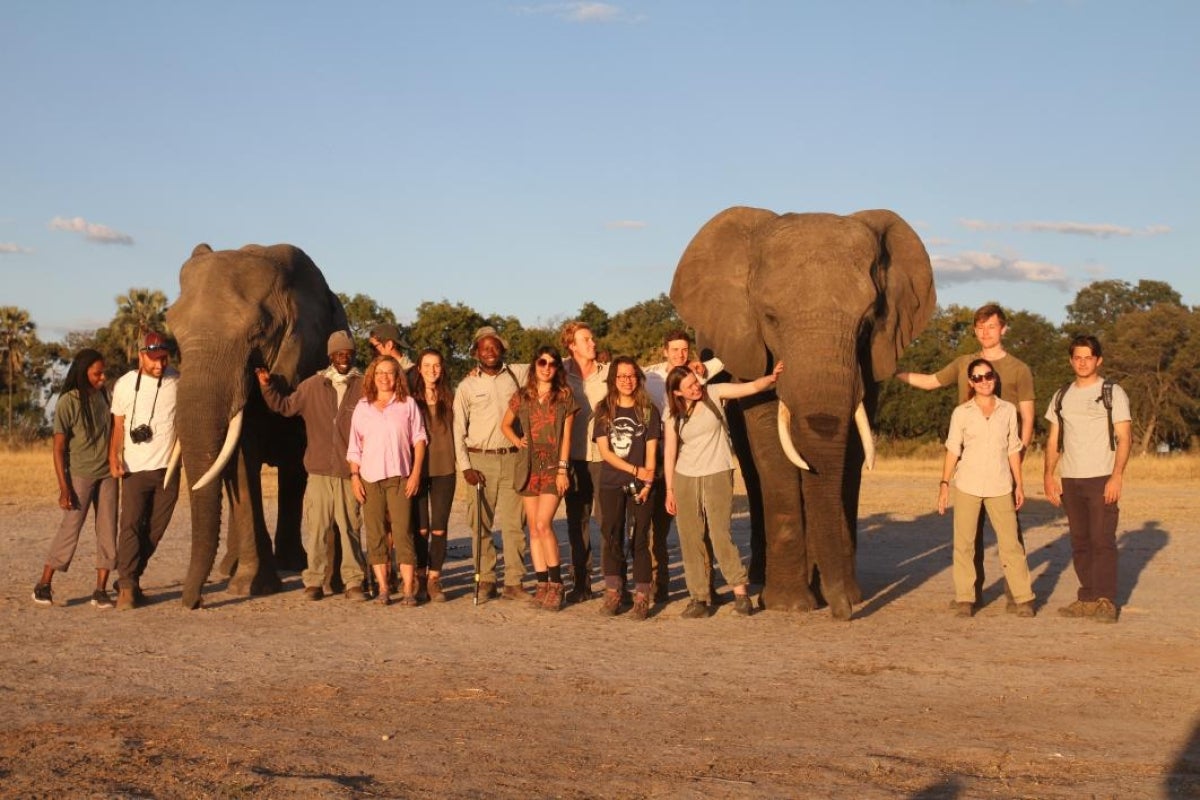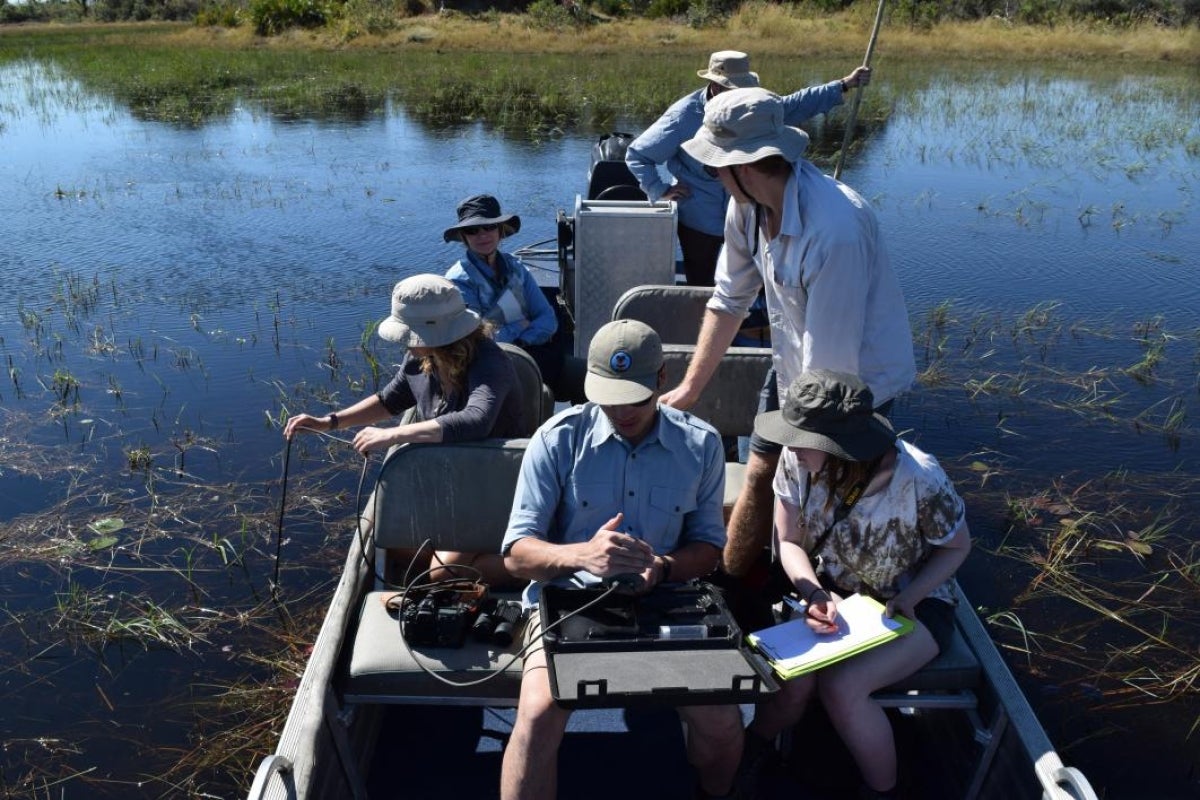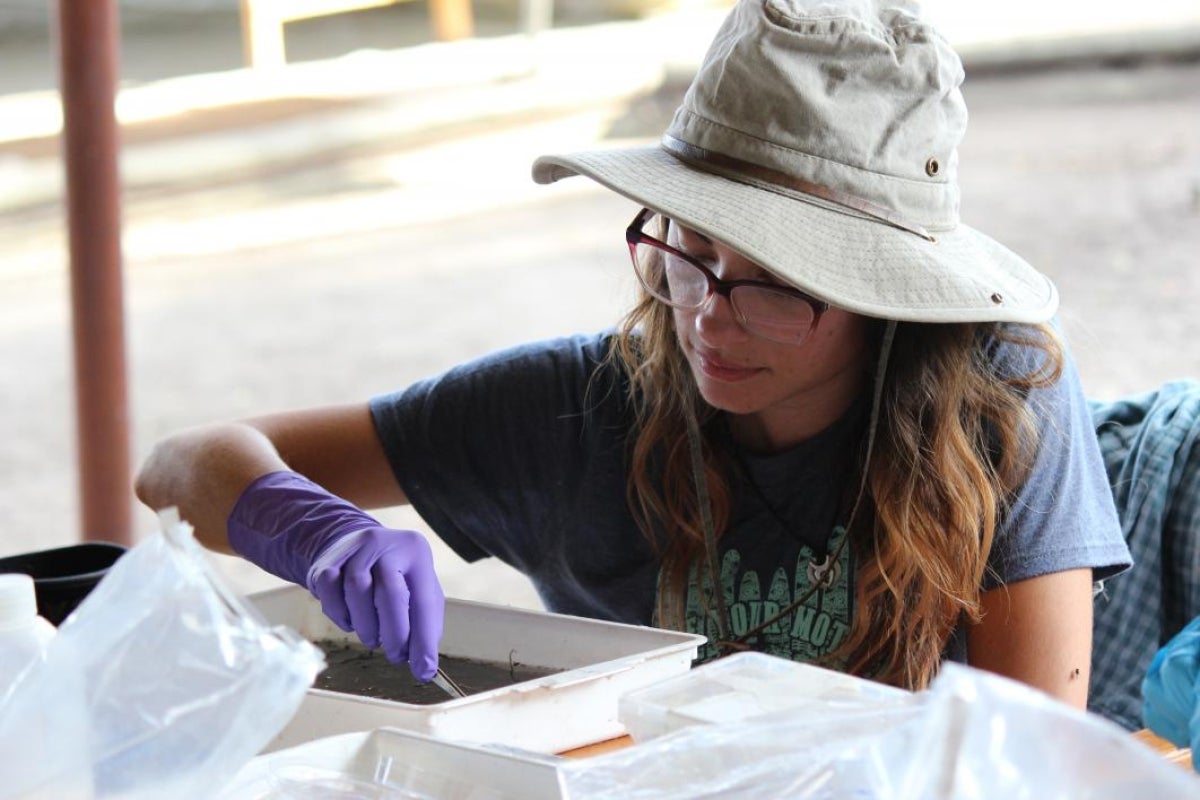ASU students study wildlife in Okavango Delta in new PLuS Alliance project
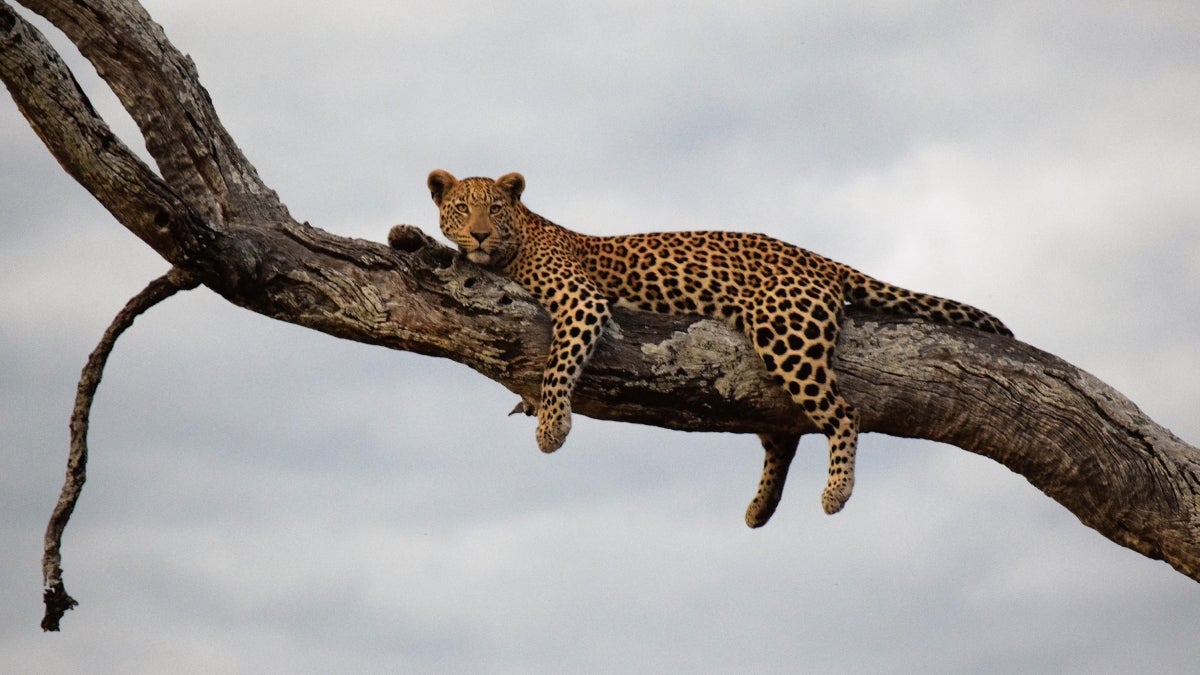
Most study-abroad trips don’t involve wild elephants tramping a few yards away from the sleeping quarters, but a group of Arizona State University students got to experience just that this summer.
Six ASU students spent 10 days in the Okavango Delta in Botswana, one of the most remote places on Earth, studying a critically important ecosystem with some of the top experts in the world.
The study-abroad trip is a new project of the PLuS Alliance, the two-year-old partnership among ASU, King’s College London and UNSW Sydney in Australia.
The ASU team joined seven students from the other two universities in an immersive three-credit research course titled, “Intersection of Water, Ecosystems and Governance.”
The point was to look at one of the world’s last unspoiled aquatic environments from an interdisciplinary perspective, according to Dave White, a professor in the School of Community Resources and DevelopmentPart of the College of Public Programs and Community Solutions., who was the ASU professor on the trip. The other experts were professors from KCL and UNSW, who were experts in aquatic ecosystems, and Claire McWilliams, an instructor in tourism the School of Community Resources and Development.
“The students were learning about not only the environment, the ecology and the tourism but also the management and the complexity of trying to balance all of these competing values,” said White, an expert on water policy, who is director of the Decision Center for a Desert City at ASU.
The Okavango Delta is one of the last undammed river systems in the world and tourism is an important industry, he said. But management is complicated because the Okavango river flows from Angola into Namibia and then into Botswana, where it dissipates into the wetlands and grasslands of the delta, creating one of the richest wildlife environments in the world.
The students learned about the very complex questions on who controls the water.
“Most of the water originates in Angola. Do they have the moral and legal right to develop those resources by creating hydroelectric plants and reservoirs to support agriculture in the country?” White said.
Michael Chadwick, a professor at King’s College London, said that the collaboration was especially useful.
“Working within the PLuS Alliance is amazing as everyone gets to learn from a wide range of people who are working and learning at institutions which are quite different in their approaches,” said Chadwick, whose expertise is in water quality and aquatic invertebrates.
“I think my favorite aspect of the course is observing how students from PhD candidates to second-year undergraduates interact with each other to learn about interdisciplinary river basin management.”
The students spent two days in the small town of Maun, at the edge of the delta region, where they learned about the ecosystem and did some preliminary field work. Then the group took two small bush planes into the delta, where they stayed at a research camp run by the nonprofit group Elephants Without Borders. The students stayed in tents and had no internet access.
“They were disconnected the whole time,” White said. “They loved it. They repeatedly said they felt liberated by that.”
The students took water samples, which they analyzed for microorganisms and oxygen levels, and did a census of animals and migration routes in the area. They encountered a leopard lounging in a tree while setting up a remote camera.
“It’s a sensory overload,” White said. “You’re on heightened alert, conscious of all the animals. You’re in the wild environment.”
The students’ work was important to determine what the delta is like now so changes can be tracked if the water flow in the area is disrupted, he said.
The Walton Sustainability Solutions Initiatives at ASU provided financial support to some of the students on the trip, which cost $4,800, not including airfare to and from Africa. Other students received travel stipends from the PLuS Alliance.
White said that next year, the study-abroad experience will be even better because it will include students and professors from the University of Botswana.
“This is important because the PLuS Alliance is between the three universities but we won’t make significant impact on understanding and advancing solutions for sustainability issues unless we work with people on the ground,” he said.
Sabrina Lomprey, a senior majoring in business sustainability in the W. P. Carey School of Business, was one of the students on the trip, which changed her thinking about how to solve environmental issues.
“The biggest thing I learned on the trip was that I thought it took individuals to make a difference in the world, one really dedicated person, but you realize that no one can do something like this on their own,” she said.
“It takes an entire team of researchers to create this difference that we were a part of.”
Lomprey said the experience of being in the wild was life changing.
“Our camp didn’t have fences so you had to be aware of your surroundings,” she said.
“We saw elephants walk through our camp at night and you could hear them come through and break the branches. We saw leopards, lions and millions of antelopes. We woke up at dawn to go on safaris and do bird surveys.”
An intense trip to a remote location requires students to be open minded, she said.
“When you’re in the wild, there are so many moving parts, you have to be adaptable and you have to be open to it all.”
To learn more about the 250-plus study-abroad programs in more than 65 different countries offered at ASU, see the Study Abroad Office website. Visit the Study Abroad Expo from 11 a.m. to 2 p.m. Aug. 22 in the Ventana Ballroom of the Memorial Union to learn more about programs and scholarships.
Top photo: The ASU students came across a leopard lounging in a tree while they were setting up a remote camera during their study-abroad trip to the Okavango Delta in Botswana in July. The trip was a new project of the PLuS Alliance. Photo courtesy of Dave White/School of Community Resources and Development
More Environment and sustainability
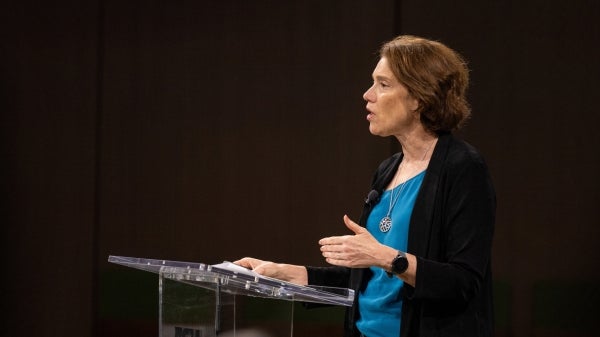
Researcher works on changing people's mindsets to fight climate change
Meaningful action to heal the climate requires a complete shift in the way people think and perceive each other, according to an expert on social transformation who spoke at Arizona State University…

NOAA, ASU offer workshop to bridge ocean exploration, education
Oceans are vital to sustaining life on Earth, as they produce over half of the oxygen we breathe and play a crucial role in regulating the planet's climate. They also support a diverse array of…

A united front for sustainability and the economy
When four leaders of esteemed learning institutions and the mayor of Phoenix gather in one location at the same time, it’s a tip-off that something big is going down.When they’re joined by visionary…
